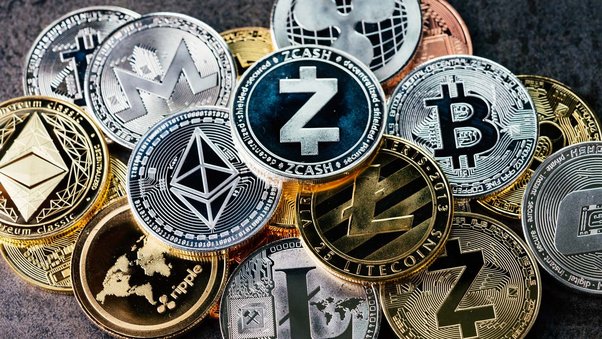on the crypto

What are altcoins?
Altcoins are all cryptocurrencies other than Bitcoin. Like Bitcoin, they are based on a distributed ledger technology called blockchain, but often have some characteristics that distinguish them from the original digital currency. For example, some altcoins may be faster or cheaper to process transactions than Bitcoin. Others have unique features such as enhanced privacy, specific use for blockchain applications or decentralized governance management.
What are the most popular altcoins?
Some of the more popular altcoins include:
- Ethereum (ETH): The second largest cryptocurrency after Bitcoin, Ethereum has a blockchain that supports decentralized applications. It also has a native cryptocurrency called Ether which is used to transact within the Ethereum ecosystem.
- Binance Coin (BNB): A cryptocurrency launched by the Binance exchange platform, used to pay trading fees on the platform.
- Ripple (XRP): A cryptocurrency that uses a technology called RippleNet to improve the transfer of money globally.
- Cardano (ADA): A blockchain platform that uses a Proof-of-Stake (PoS) consensus mechanism and aims to provide a solution for decentralized governance.
Advantages of altcoins
Portfolio Diversification: The main benefit of altcoins is that they allow investors to diversify their cryptocurrency portfolio. While Bitcoin has proven to be a lucrative investment, its volatility can be dangerous for investors who want a more balanced portfolio. Altcoins offer a wider range of options for investors who want to experiment with lesser-known cryptocurrencies.
Potential Gains: Some altcoins have grown faster than Bitcoin. For example, Ethereum's Ether rose 1.300% in 2017, vastly outpacing Bitcoin's 1.200%. Savvy investors who can identify altcoins with high earning potential can benefit from a broader portfolio of cryptocurrencies.
Risks of altcoins
Volatility: Altcoins are generally more volatile than Bitcoin and other established cryptocurrencies. This means that investors must be prepared to accept more risk, as the price of an altcoin can fluctuate significantly in a short period of time. Volatility can be caused by factors such as investor demand, market news, and Bitcoin price fluctuations.
Liquidity: Some altcoins may be less liquid than Bitcoin, which means they can be more difficult to buy or sell on an exchange platform. This can limit investors' ability to buy or sell altcoins quickly and conveniently.
Security: Since altcoins are less well known than Bitcoin, they can be more exposed to security risks such as cyberattacks and fraud. Investors need to do their research and make sure they are only investing in safe and reliable altcoins.
Conclusions
Altcoins are an attractive option for cryptocurrency investors who want to experiment with digital currencies other than Bitcoin and diversify their portfolio. However, investors should be aware of the risks associated with altcoins, such as volatility and limited liquidity. Also, it is important to do your own research to identify safe and reliable altcoins to avoid scams or financial loss.
In general, altcoins represent a new frontier of cryptocurrencies and can offer a wide range of advantages for investors who are ready to take on more risks. However, as with any investment, it's important to exercise caution and do your research to make informed and reasonable decisions.
